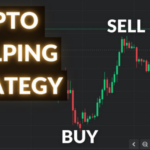
Understanding Scalping in Forex Trading
Scalping trading is a popular strategy used in the forex market. It involves making multiple quick trades to profit from small price movements. This article aims to provide an in-depth understanding of scalping trading, including its advantages and risks. Additionally, it will offer some valuable tips for successful scalping in the forex market.
Comparing Alternatives trading strategies
| Strategy | Advantages | Risks |
| Scalping Trading | Quick profits from small price movements | Requires constant monitoring and quick actions |
| Day Trading | Takes advantage of daily market fluctuations | Requires in-depth market analysis |
| Swing Trading | Capitalizes on medium-term price trends | Requires patience and longer-term commitment |
| Position Trading | Suitable for long-term investors | Profits may take a significant amount of time |
Definitive Features of Scalping Trading
1. Short Timeframes: Scalping traders aim to complete trades within minutes or seconds. They focus on small price movements that may occur in a matter of seconds.
2. Multiple Trades: Scalping involves taking multiple trades throughout the day. Traders may execute tens or even hundreds of trades within a single trading session.
3. Technical Analysis: Scalpers primarily rely on technical analysis tools to identify entry and exit points. They often use indicators, charts, and patterns to make swift trading decisions.
4. Tight Stop-Loss Orders: To manage risks effectively, scalpers use tight stop-loss orders to limit potential losses. They are quick to exit a trade if it does not move in their expected direction.
Advantages of Scalping Trading
1. Quick Profits: Scalpers aim to profit from small price movements, enabling them to accumulate quick profits throughout the day.
2. High Trading Frequency: Scalping allows traders to take advantage of numerous trading opportunities due to its fast-paced nature. This increases the potential for generating more profits.
3. Lower Risk Exposure: Scalpers hold positions for a short period, minimizing the risk exposure associated with longer-term trades.
4. Independent of Market Direction: Scalping can be profitable in both rising and falling markets. Scalpers are not reliant on long-term market trends to generate profits.
Risks of Scalping Trading
1. Time-Consuming: Scalping requires constant monitoring of the market and quick decision-making. This can be mentally and physically demanding, making it unsuitable for all traders.
2. High Transaction Costs: Due to the high trading frequency, scalpers may face significant transaction costs, including spreads, commissions, and slippage.
3. Technology Reliance: Scalping relies heavily on fast and reliable internet connections, as well as advanced trading platforms. Any technical issues can negatively impact trading performance.
4. Emotionally Challenging: The fast-paced nature of scalping can be emotionally challenging, as traders need to make quick decisions and accept losses swiftly.
Tips for Successful Scalping in the Forex Market
1. Select a Liquid Currency Pair: Scalpers should focus on trading highly liquid currency pairs, as they offer tighter spreads and reduced slippage.
2. Use Tick Charts: Tick charts provide a detailed view of price movements and are particularly useful for scalping. They allow traders to spot quick opportunities and act accordingly.
3. Set Realistic Profit Targets: Scalping relies on accumulating small profits, so setting realistic profit targets is essential. Greed can lead to taking unnecessary risks.
4. Keep an Eye on Economic News: Economic news releases can significantly impact currency prices. Scalpers should be aware of the economic calendar to avoid potential volatility.
Frequently Asked Questions (FAQs)
Is scalping suitable for beginners?
Scalping requires experience, quick decision-making abilities, and a strong understanding of technical analysis. Beginners are advised to start with longer-term trading strategies.
How much capital is required for scalping?
The capital required for scalping depends on the trader’s risk tolerance, chosen currency pairs, and the broker’s minimum account requirements.
Can scalping be automated?
Yes, some traders use automated trading systems for scalping. However, careful consideration of the system’s performance, risk management, and frequent monitoring is crucial.
Conclusion
Scalping trading is a fast-paced strategy that involves making multiple quick trades to profit from small price movements. While it offers advantages such as quick profits and high trading frequency, it also comes with risks such as increased transaction costs and the need for constant monitoring. By following the tips provided in this article, traders can enhance their chances of success in the forex market through scalping trading.






